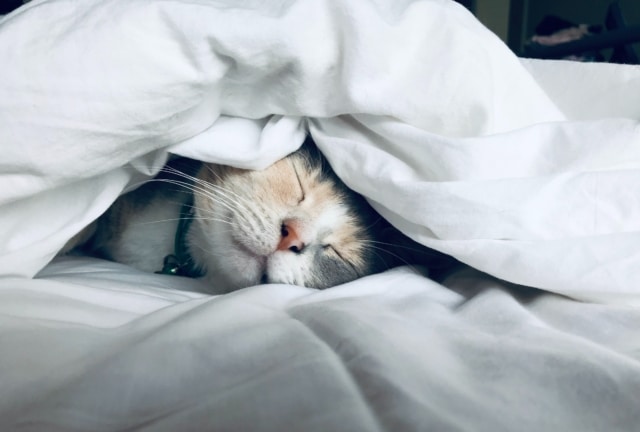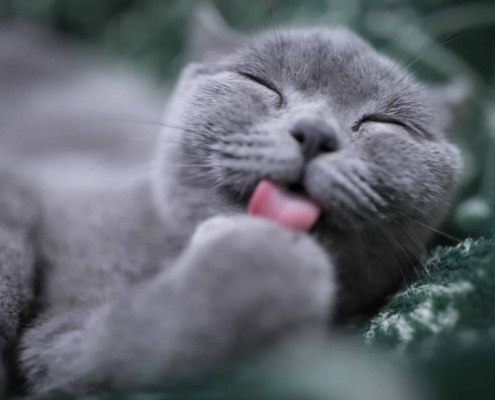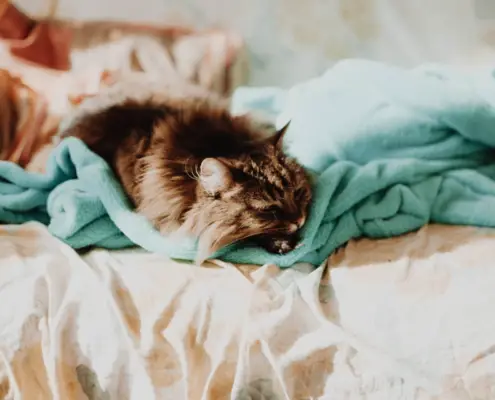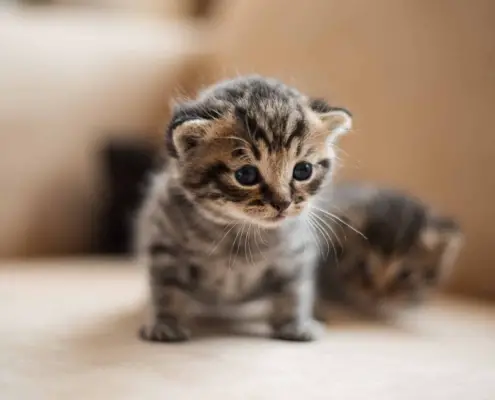
Kidney problems in cats, also known as feline kidney disease, are a common concern for many pet owners. The kidneys play a vital role in a cat’s overall health, filtering waste products from the blood and maintaining proper hydration. When the kidneys are not functioning properly, it can lead to a range of health issues. Understanding the causes, signs, and symptoms of kidney problems in cats is crucial for providing the best care possible.
Common causes of kidney problems in cats
There are several common causes of kidney problems in cats. One of the leading causes is age-related degeneration of the kidneys. As cats get older, their kidneys may become less efficient at filtering waste products. Other causes include infections, urinary blockages, exposure to toxins, certain medications, and genetic predispositions. It’s important to be aware of these potential causes and take steps to minimize the risk of kidney problems in cats.
Signs and symptoms of kidney problems in cats
Recognizing the signs and symptoms of kidney problems in cats is essential for early detection and treatment. Some common signs include increased thirst and urination, weight loss, decreased appetite, vomiting, diarrhea, lethargy, and changes in behavior. Cats with kidney problems may also exhibit signs of dehydration, such as dry gums and sunken eyes. Regular monitoring of your cat’s behavior and health can help you identify any potential kidney issues.
Diagnosing kidney issues in cats
If you suspect that your cat may have kidney problems, it is crucial to consult a veterinarian for a proper diagnosis. The vet will perform a thorough physical examination and may recommend additional tests, such as bloodwork, urine analysis, and imaging tests like ultrasound or X-rays. These tests can help determine the extent of the kidney damage and guide the treatment plan.
Treatment options for kidney problems in cats
Once a diagnosis is made, the veterinarian will discuss the treatment options for managing kidney problems in cats. Treatment typically focuses on managing symptoms, slowing down the progression of the disease, and improving the cat’s quality of life. This may involve dietary changes, medications to control blood pressure and reduce protein loss, fluid therapy, and supportive care. In some cases, more advanced treatment options like kidney transplants or dialysis may be considered.
Diet and nutrition for cats with kidney issues
Diet plays a crucial role in managing kidney problems in cats. Cats with kidney issues often benefit from a special diet that is low in protein, phosphorus, and sodium. These dietary modifications help reduce the workload on the kidneys and minimize the accumulation of waste products in the body. Your veterinarian can recommend specific commercial kidney-friendly cat foods or provide guidance on preparing homemade meals that meet the nutritional needs of cats with kidney problems.
Tips for managing kidney problems in cats at home
In addition to veterinary care, there are several steps you can take to manage kidney problems in cats at home. Ensure your cat has access to fresh water at all times to maintain proper hydration. Regularly monitor their food intake and administer medications as prescribed. Create a quiet and stress-free environment for your cat, as stress can exacerbate kidney issues. Consider providing additional support, such as heated beds or ramps, to make your cat’s daily activities more comfortable. Regularly communicate with your veterinarian and follow their recommendations for ongoing care.
Preventive measures for kidney issues in cats
While it may not be possible to prevent all cases of kidney problems in cats, there are certain preventive measures you can take to minimize the risk. Ensure your cat has a balanced and nutritious diet, free from excessive salt and toxins. Keep their environment clean and free from potential hazards. Regular veterinary check-ups and screenings can help detect any early signs of kidney issues and allow for timely intervention. By taking these preventive measures, you can provide a healthier and happier life for your feline companion.
When to seek veterinary help for kidney problems in cats
If you notice any signs or symptoms of kidney problems in your cat, it is important to seek veterinary help promptly. Early intervention and treatment can make a significant difference in managing the condition and improving your cat’s quality of life. Additionally, if your cat has a pre-existing condition that puts them at a higher risk of kidney issues, regular veterinary check-ups and proactive monitoring are crucial. Remember, your veterinarian is the best resource for guidance and support when it comes to managing kidney problems in cats.
Providing the best care for cats with kidney problems
Managing kidney problems in cats requires a comprehensive approach that combines veterinary care, dietary modifications, and diligent home management. By understanding the causes, signs, and symptoms of kidney issues, pet owners can take proactive steps to ensure their feline companions receive the best care possible. Regular communication with a veterinarian, adherence to prescribed treatment plans, and a supportive home environment all contribute to optimizing a cat’s well-being. By providing the necessary care and attention, pet owners can help their cats live happy and comfortable lives despite kidney problems.
If you suspect your cat may have kidney problems, don’t hesitate to consult a veterinarian. Early intervention is key to managing the condition effectively. Reach out to your vet today for expert guidance and support.
If you enjoyed my article, I would appreciate you sharing it with your network.

Sima Ndlebe
Sima writes for CatBuzz. He is interested in Cats, Health and Fitness, and Entrepreneurship.
Published: 12 October 2023
Related Articles
Disclaimer
The content found on CatBuzz.org is presented on an "as is" basis and is intended for general consumer information and education purposes only. Any utilization of this information is voluntary and solely at the user's own risk.
None of the articles or content should be regarded as, or used in place of, veterinary medical advice, diagnosis, or treatment. The information provided on the website is purely for educational and informational intentions and should not be considered a substitute for professional guidance from a veterinarian or other qualified expert. The articles are designed to inform consumers about veterinary healthcare and medical matters that may impact their cat's daily life. It should be noted that this website and its services do not constitute the practice of any form of veterinary medical advice, diagnosis, or treatment. CatBuzz.org explicitly disclaims any liability for any direct or indirect damages or losses that may arise from the use of or reliance on the information contained within the content.
Consumers must consult a veterinarian, veterinary specialist, or another qualified veterinary healthcare provider when seeking advice regarding their cat's health or medical conditions. It is important not to ignore, avoid, or postpone seeking medical advice from a veterinarian or other qualified veterinary healthcare provider solely based on information obtained from this website. If you believe that your cat may be experiencing a medical issue or condition, it is imperative to promptly contact a qualified veterinary healthcare professional.



